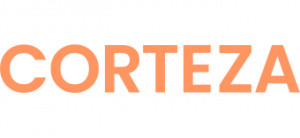With a university degree in Social Science, much of my early adult life was spent debating the equalities and inequalities of life with my fellow students. Admittedly, I wasn’t the student with the most erudite or succinct points of view (and probably never will be!), but one thing became crystal clear to me: While social inclusion can be the goal, it’s often useful to think of it as a discipline and responsibility to be constantly maintained and improved. Exclusion can be structural, but inclusion can be too.
When forming the board of directors of the Corteza project, we went out of our way to ensure that the board had a majority of women. We also recruited a proud member of the LGBT community. We set the bar high, with the criteria of prior proven leadership in their field being compulsory. In the end, we achieved our goal, something which is startlingly rare in open source projects – a board of directors not dominated by men.
However, let’s face it, though it’s a step in the right direction, this is still not a 100% socially diverse board. We have more work to do with regards to casting the net wider in our recruitment efforts. As Corteza attracts wider and wider audiences we intend to profit from this exposure and fulfill our responsibility.
Next on the agenda for the Corteza project is to recruit Chairs for our outreach programmes. These are roles which determine how the overall Corteza project meshes together from a strategic perspective and include the following categories:
- Humanitarian
- Ecological
- Health
- Locali(s)(z)ation
- Accessibility
- Commercial
- Public Sector
- Educational
- Identity & Privacy
- Compliance
- Security
- Digital Economy
Once again, we intend to drive diversity of representation among the programme Chairs and, once again, we will only recruit those who have proven credentials relevant to the specific programme in question. This is a voluntary role and the “give” is one hour of your advice per month to help determine a programme strategy and keep it on track.
If you think you or someone you know might fit the description, please don’t hesitate in reaching out to me here on LinkedIn or sign up to https://latest.cortezaproject.org and open a conversation with me there.




